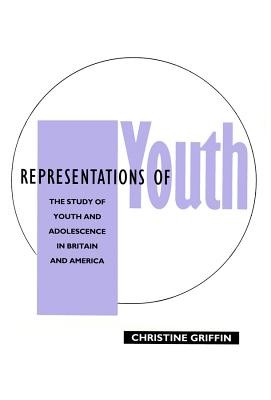
- We will send in 10–14 business days.
- Author: Christine Griffin
- Publisher: Polity Press
- ISBN-10: 0745602800
- ISBN-13: 9780745602806
- Format: 15.8 x 23.2 x 1.7 cm, minkšti viršeliai
- Language: English
- SAVE -10% with code: EXTRA
Reviews
Description
Representations of Youth examines the various constructions of `youth' and `adolescence' in recent British and North American research. Mainstream and radical approaches have presented a series of `crises' about young people in relation to, among other things, unemployment, `teenage pregnancy' and `delinquency'. This book considers research in psychology, sociology, education, criminology and cultural studies in order to assess these accounts.
The author offers a critical review of a wide range of findings about young people in areas as diverse as education and training, leisure, family life and sexuality. She shows that whilst youth research texts do not reflect young people's experiences in any straightforward manner, they do indicate the various complex and contradictory ways in which `youth', `adolescence' and specific groups of young people are represented in contemporary western societies. In so arguing, she presents new terms for thinking about the position of young people today.
This is an important new text accessibly written for students of sociology, social psychology and contemporary culture in both Britain and the USA. It will also be of great interest to social science researchers in a range of other disciplines.
EXTRA 10 % discount with code: EXTRA
The promotion ends in 23d.12:30:14
The discount code is valid when purchasing from 10 €. Discounts do not stack.
- Author: Christine Griffin
- Publisher: Polity Press
- ISBN-10: 0745602800
- ISBN-13: 9780745602806
- Format: 15.8 x 23.2 x 1.7 cm, minkšti viršeliai
- Language: English English
Representations of Youth examines the various constructions of `youth' and `adolescence' in recent British and North American research. Mainstream and radical approaches have presented a series of `crises' about young people in relation to, among other things, unemployment, `teenage pregnancy' and `delinquency'. This book considers research in psychology, sociology, education, criminology and cultural studies in order to assess these accounts.
The author offers a critical review of a wide range of findings about young people in areas as diverse as education and training, leisure, family life and sexuality. She shows that whilst youth research texts do not reflect young people's experiences in any straightforward manner, they do indicate the various complex and contradictory ways in which `youth', `adolescence' and specific groups of young people are represented in contemporary western societies. In so arguing, she presents new terms for thinking about the position of young people today.
This is an important new text accessibly written for students of sociology, social psychology and contemporary culture in both Britain and the USA. It will also be of great interest to social science researchers in a range of other disciplines.


Reviews